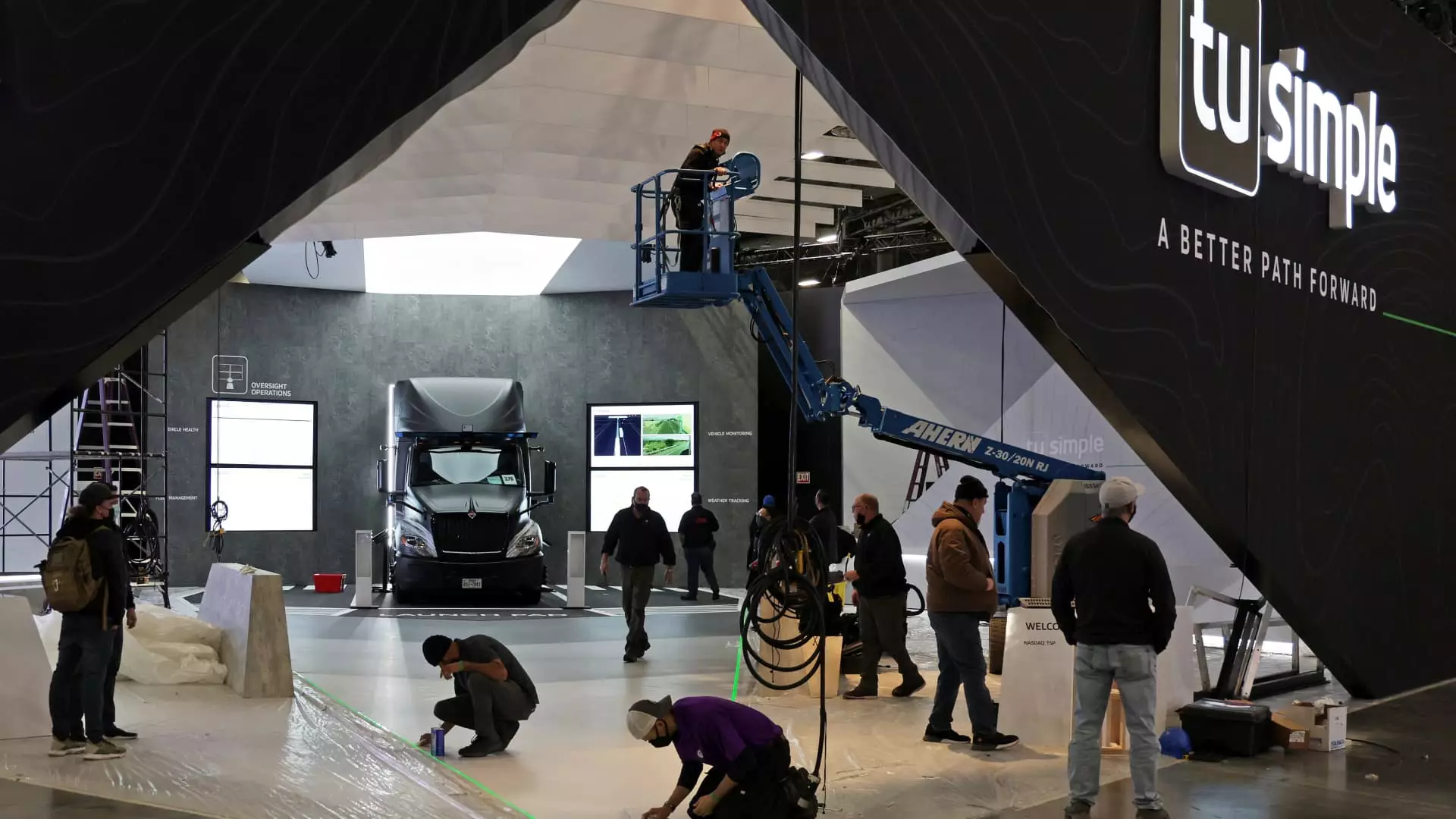In a striking yet anticipated move, TuSimple, a troubled name in the autonomous trucking industry, has undergone a significant transformation, rebranding itself as CreateAI. This shift signifies the company’s pivot towards the realms of video games and animation, a decision that comes on the heels of compelling challenges in the self-driving sector. With the recent closure of GM’s Cruise robotaxi operations, the turbulence within the self-driving market has amplified the need for startups to either innovate or exit.
TuSimple’s journey has been far from straightforward. The company has grappled with a slew of obstacles, including heightened scrutiny concerning vehicle safety, significant financial settlements related to securities fraud that amounted to $189 million, and the distressing delisting from Nasdaq earlier this year. These setbacks represent more than mere bumps in the road; they illustrate a broader trend of consolidation within a once-promising industry that is now rapidly weeding out underperformers.
Cheng Lu, who has re-assumed the CEO role after a previous ouster, is at the forefront of this metamorphosis. He envisions a break-even point for CreateAI by 2026, propelled by an ambitious video game inspired by the revered martial arts writings of Jin Yong. Cheng is optimistic, forecasting revenues in the “several hundred million” range by 2027 upon the full rollout of the game. This project is not merely a side endeavor; it represents a critical pivot for the company, redirecting resources and attention away from an uncertain future in transportation towards a burgeoning entertainment horizon.
Prior to its delisting, TuSimple’s financial disclosures painted a grim picture, with losses soaring to $500,000 within the first three quarters of 2023. However, the company has continued to invest heavily, dedicating $164.4 million to research and development. This financial commitment underscores a belief in technological potential—not just in trucking, but in generative AI. By leveraging its background in autonomous driving technology, CreateAI aims to establish a foothold in the growing field of generative AI, which has gained traction through platforms such as OpenAI’s ChatGPT, which utilizes AI to create human-like responses to queries.
In tandem with its rebranding, CreateAI has rolled out its inaugural AI model named Ruyi, an open-source platform designed for visual content creation, available on Hugging Face. This ambitious step signifies not merely a name change but an alignment with modern technological trends that focus on interactivity and creativity. Cheng has hinted at a strong foundation of shareholder support for this new direction, indicating a shift in both perception and expectations surrounding the company’s trajectory.
The company is aiming to expand its workforce significantly, targeting an increase from 300 to 500 employees in the coming year, thereby positioning itself better to handle the demands of its newfound focus areas. This expansion reflects a growing belief that redeveloping the brand will generate fresh opportunities, particularly in the gaming industry, where demand for innovative content is burgeoning.
Earlier this year, while still under the TuSimple banner, the company announced a pivotal partnership with Shanghai Three Body Animation, aimed at adapting the acclaimed “The Three-Body Problem” science fiction series into both an animated film and a video game. Such collaborations are not merely marketing efforts; they are indicative of a broader strategy to integrate storytelling with technological advancement, creating immersive experiences for users.
Cheng also expressed a commitment to reducing production costs for triple-A games by an estimated 70% over the next five to six years. By doing so, CreateAI can both foster innovation in game development and support new avenues for talented creators, potentially reshaping the industry landscape.
While the company faces hurdles, particularly amidst stringent U.S. regulations targeting Chinese tech firms, Cheng articulated optimism regarding their mixed cloud computing strategy, which mitigates some risk. The evolution of CreateAI signals not just a change in identity but also a robust response to market demands and an opportunity to redefine success in a volatile tech environment.
As CreateAI steps into this new chapter, it exemplifies the resilience and adaptability that are vital for survival in today’s fast-paced digital world. The transition from trucking to entertainment illustrates a proactive approach, embracing change while laying groundwork for potential financial recovery and sustainability.

